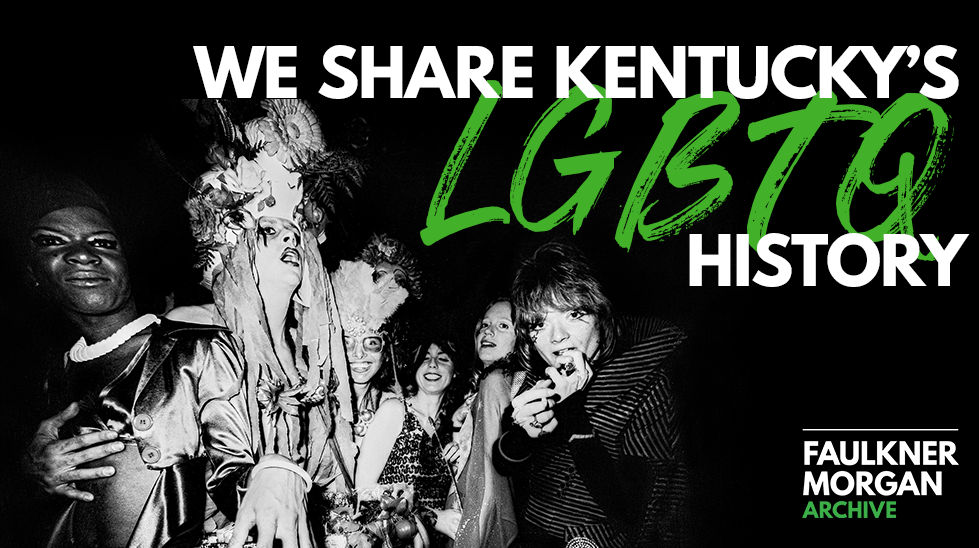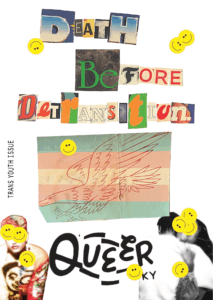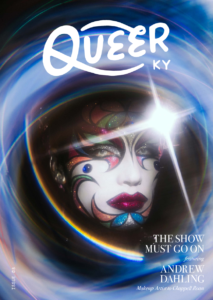Recovery advocate discusses intersections of Jewish identity

By Aaron Guldenschuh-Gatten he/him
One June weekend, on a Friday, I arrived at the crest of a hill on a hundred-acre farm, deep in the rolling wooded hills of Central Kentucky. The setting summer sun bathed the distant pasture in gold as waves of tall grass seemed to whisper to me. A close-by friend, also admiring the view, remarked, “This must be what people imagine when they think of America.” Another friend said, “Heaven must be a Kentucky kind of place.” Nearly 50 of us, all queer men, gathered for a weekend rooted in community, authenticity, and freedom. This place is a kind of queer Kentucky paradise; there is a swimming hole, an enormous flower garden, a three-story tree house, several whimsical cabins, and plenty of walking paths.
It was only my second year attending this summer gathering, but I had already developed meaningful friendships. This particular weekend I brought some items to welcome Shabbat, namely challah and grape juice. As the sun disappeared behind the western ridge, I uttered my prayers in quiet appreciation for the community I had come to love; a community and place of shalom – peace and wholeness.
There is a story in the Torah (in Genesis 28) about Jacob and a ladder to heaven. Jacob comes to a place and rests on his journey. As he lays down for the night; he falls into a dream state and encounters spiritual bodies ascending and descending; he senses a voice from God who states that God is the God of Jacob’s ancestors. God promises to bless Jacob and bring him to this place.
After his dream, Jacob offers prayers of gratitude. It seems that this episode provides Jacob with insights into his identity – insights into who he is. Immediately following this encounter, Jacob embraces his identity with renewed vigor. Religious Scholars refer to this kind of event as Theophany (God interferes in life and gives an epiphany). Jacob’s theophany occurred at a particular place – a place where Jacob believed he encountered the Sacred, naming The Place “Beit-El” (or Bethel, meaning house of God).
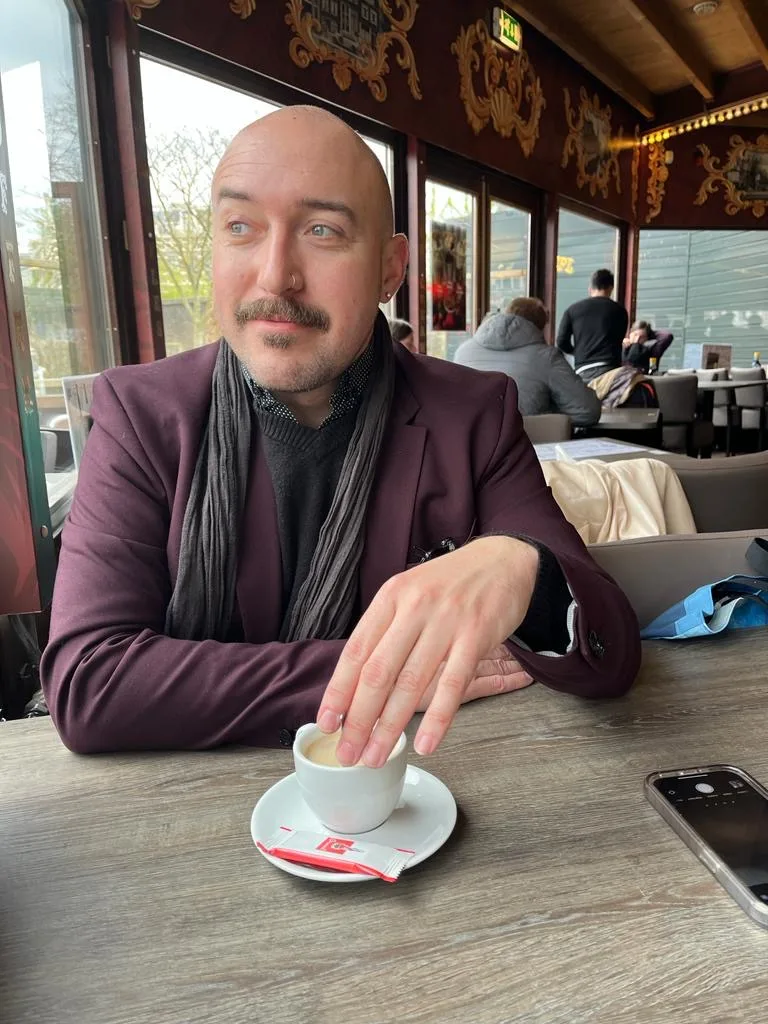
This story and the God-interfering theme has significance in Jewish tradition. When we greet a mourner, we say “Hamakom y’nachem etchem b’toch sh’ar availai tziyon v’ yerushalayim” – which means: “May The Place (God) comfort you among the mourners of Zion and Jerusalem.” Our greeting of comfort for mourners can be thought of this way: may God –the place of insight and self-knowledge– comfort you; may God – the place of your identity and blessing—comfort you (May you find comfort in the place where you are authentically yourself).
Chances are, that if you meet me you will learn in the first several minutes that I am queer, Jewish, in recovery; and probably Kentuckian. I did not grow up in Kentucky. For the first 21 years of my life, I lived in North Carolina where I was born the Yankee-descended product of my father’s transplanting military career. But I am a Kentuckian. So much of my early life was marked by confusion about my identity. Am I a southerner or northerner? Am I Jewish or am I an Evangelical Christian? Am I bi or gay or simply a cast away…? When I moved to Kentucky for graduate school in 2004, my identity began to distill thanks to the love of teachers and friends who gave me freedom to be myself.
In my life, Kentucky is “the place.” Here, I believe I have encountered sacred self-knowledge. Kentucky is home to my adulthood and personhood. My transformative years took place here. Deep and meaningful friendships took root here; teachers became friends; I fell in love. In Kentucky I made a commitment to live a Jewish life; I faced the devastation of the diseases of addiction and Bipolar disorder here, and I embraced treatment and recovery here.
One of my relatives once asked me why I moved to Kentucky. He said, “You can’t help that you were born in North Carolina, but why make it worse for yourself as a gay man, moving to Kentucky?”
It really hadn’t occurred to me that I was “making it worse.” In 2004 I moved to Louisville, a progressive, open, and fair city (not without its problems). I shared with my uncle that I found Louisville to be a great place for me as a gay man; it was. And Louisville was a great place for me to lean into my Jewish identity. There, during my 30s I developed a community of chosen family, queerdos, Jews, and others at Rosh Hashanah parties, Yom Kippur break-fasts, World AIDS Day commemorations, around Passover Seders, and at Pride celebrations. My own Kentucky synagogue, The Temple – Adath Israel Brith Sholom, led by my friend Rabbi David Ariel-Joel hosts Pride Shabbat in Kentucky every June (since 2015). The Temple participates in the Kentuckiana Pride parade and has consistently welcomed and celebrated LGBTQ+ people like me.
After nearly four years in Ohio, I returned to Kentucky, this time Lexington. Living in Central Kentucky has given me a deeper appreciation for Kentucky. I have had more Theophanies in my queer and Jewish life. And I have found meaning in my work as a peer in the substance use disorder recovery community. I am working in a progressive, forward-thinking recovery community center. Recovery Cafe Lexington is a community of peers, healing through the rigorous engagement of our humanity and the humanity of others through a lens of love – inviting each of us to bring our most authentic selves to the table. In my work, I have learned from others that there is healing power in connection and that the answer to the isolating terrors of addiction is community.
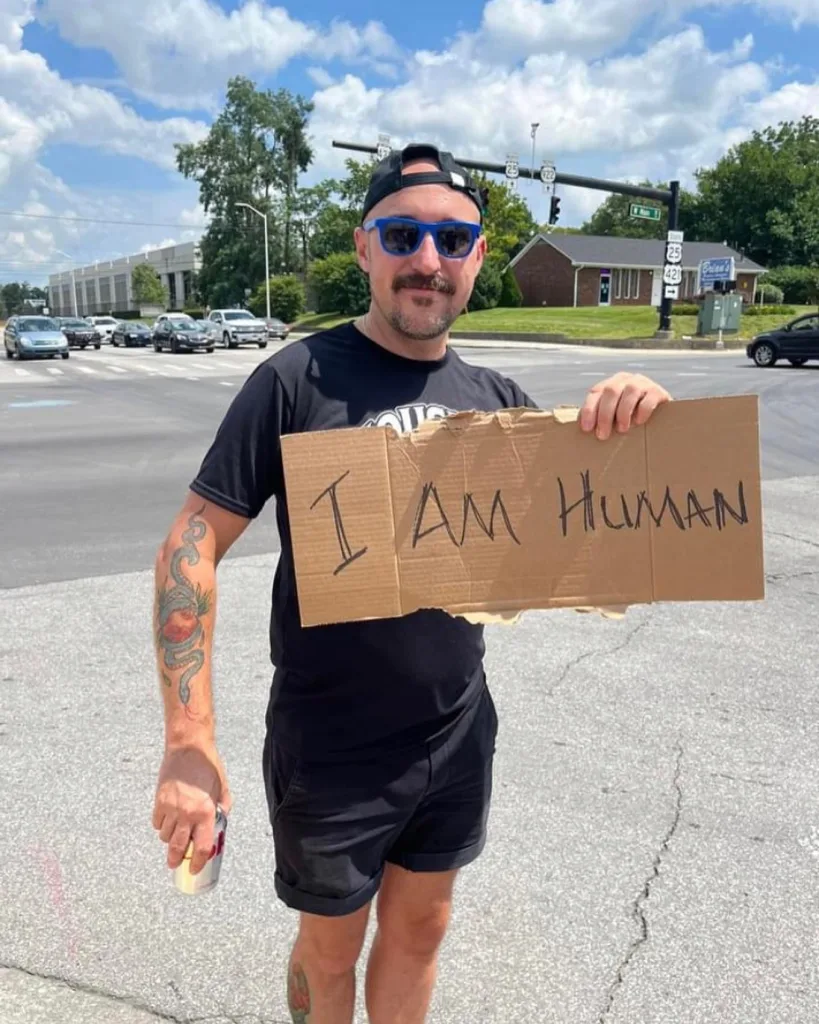
Community is at the heart of what I think it means to be queer, Jewish, and in recovery. Authentic community is vital to my sense of belonging. Kentucky is the place in which I have discovered and affirmed my most authentic self.
Many, especially outsiders, think of Kentucky as a conservative place; it is. But I have found Kentucky to be populated with loving, fair-minded, common-sense, curious people. There is life here for queer people, for Jewish people, and for queer Jewish people. Throughout my life in Kentucky, I have discovered pockets of progressive, sex-positive, queer-affirming and celebrating community. Kentucky has been and continues to be the place where I find my authentic self – and where I encounter divine-like interference, affirming and celebrating my identities.
May you find the place where you are authentically yourself. I am queer, here.
